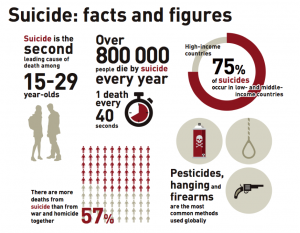This is the first of a series of articles, which are written around the celebrations of World Suicide Prevention Day (September 10) and World Mental Health Day (October 10) to raise awareness on issues concerning mental health.
There is evidence that people do not relate well to the term “mental health”. When we hear the term, we think “mental illness” and negative words associated with it like “madness” and “stigma” and “discrimination”. So when we talk positively about people’s emotional/psychological/spiritual health, experts around the world advocated that we use the term “wellbeing” or “emotional wellbeing” to describe good mental health.
The World Health Organization (WHO) defines mental health as a state of wellbeing in which every individual realises his or her own potential, can cope with the normal stresses of life, can work productively and fruitfully, and is able to make a contribution to her or his community.
In Fiji in recent years there has been a shift away from a focus on illness alone, to more attention on wellness, both in policy and health practice. Fiji is a leader in this field with the creation of the National Wellness Centre in the Ministry of Health. Illness and wellness are now considered to be more than simply two ends of a continuum, but separately operating dimensions. It is the same with mental illness and emotional wellbeing. Emotional wellbeing is seen as a very important part of wellness. A person can still have high emotional wellbeing even if she or he has a mental illness, or a physical illness.
It is strongly believed by modern medical scientists that some serious mental illnesses are caused genetically or biochemically. These include psychoses (common symptoms are being out of touch with reality evidenced by hearing voices and believing things that are not true) and major depression. Only a small percentage of the population suffer from these illnesses. So both researchers and clinicians are moving away from viewing mental health in terms of the presence or absence of symptoms. Instead, they have been trying to discover what it means to be in good mental health, and what we can do to nurture our own mental wellbeing. For most of us, this is our challenge in the ever-changing world with its many pressures.
Countries including Fiji, New Zealand and Great Britain are teaching that there are 5 ways to wellbeing: Give, Connect, Be Active, Take Notice (or be curious), and Keep Learning. We will talk about these in a future article.
Last Updated on 9 years by Publishing Team


